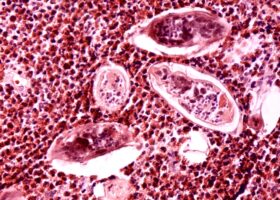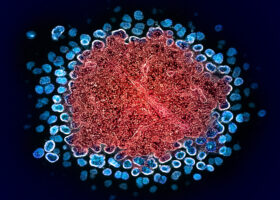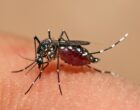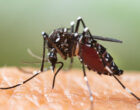
Female genital schistosomiasis needs more attention
It is now recognised that health studies and interventions have historically been male-biased, and female-related health issues less explored. The… Read more »

It is now recognised that health studies and interventions have historically been male-biased, and female-related health issues less explored. The… Read more »

Many of the most frightening human viruses have only recently made the jump from another species. These ‘zoonoses’ include the pandemic virus… Read more »

Krisztian Magori highlights the ongoing dengue epidemic in South America, especially Brazil, and reviews a couple of recent papers… Read more »

In a recent study in Spain, researchers looked at the helminths infecting the endangered Cantabrian brown bear population, to… Read more »

A new study in Parasites and Vectors looks at the potential impact the invasive Aedes albopictus in southern Spain.

The first-ever outbreak of Japanese encephalitis in temperate Australia is connected to the creation of extensive wetlands… Read more »

Removing vital genes that affect a creature’s behaviour could be a way to ameliorate the impact of disease vectors such as… Read more »

While the ‘greening’ of cities offers a promising avenue for enhancing urban resilience to climate change, careful… Read more »

Claudia Zampaloni and colleagues have identified a new class of antibiotic chemicals - tethered macrocyclic peptides (MCP) that… Read more »

Cabo Verde, a beautiful archipelago of West Africa in the central Atlantic Ocean, has been declared malaria-free by the World… Read more »